Who and Why Localizes Car Components in Kazakhstan?
The global car market is recovering from the protracted crisis and the pandemic, business is restructuring its work given the lessons learnt. Kazakh manufacturers are making ambitious localization plan.
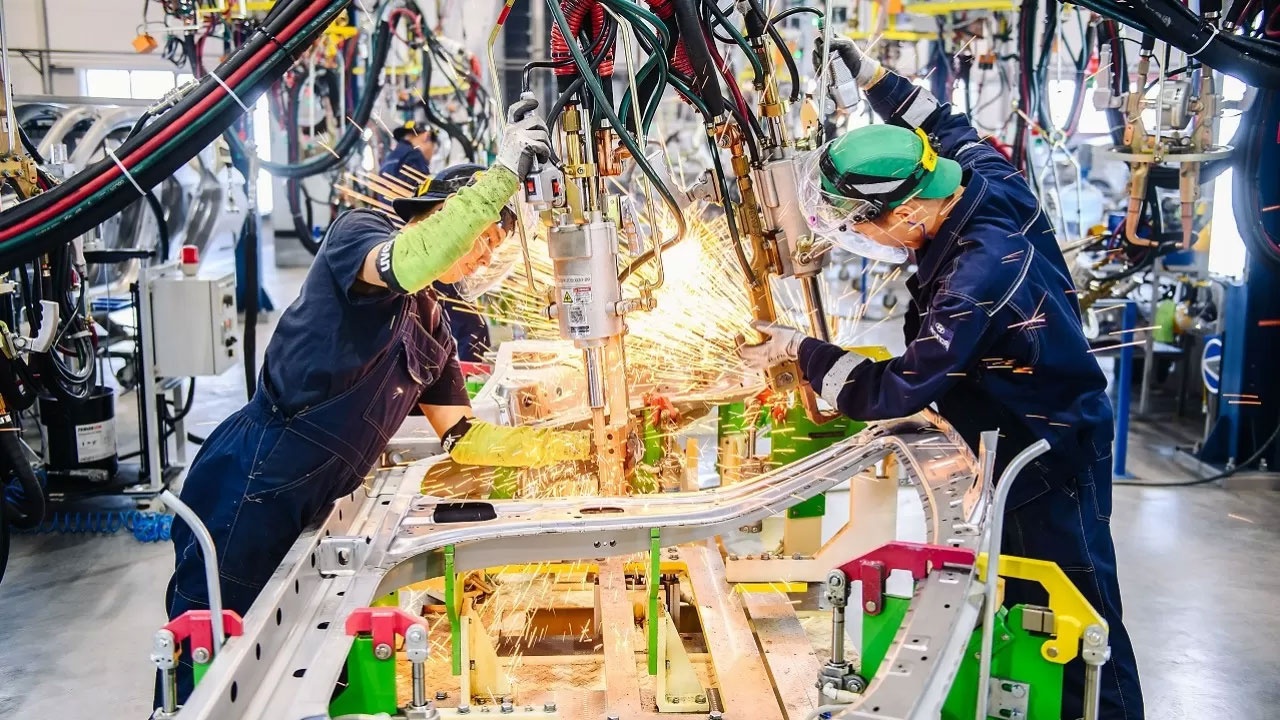
Logistics turned out to be most vulnerable during the crisis. The pandemic and the international political situation led to the lack of certain car components. For example, according to Artur Miskaryan, Director of the Car Market Monitoring and Analysis Agency, car wirings were supplied by Ukraine and some types of metals and fasteners for car body panels around the world were supplied by Russian plants. The logistics crisis increased the time of supply of car-making components and the cost of containers and logistics.
“Global and Kazakh market players are adapting to new conditions, revising their business models and reorganizing logistics. Over the last years, Kazakhstan’s auto industry has been showing a stable positive trend. This is about both sales figures and the quality of vehicles manufactured in various regions of our country. During the last year, 124,000 new vehicles were sold, over 100,000 cars were manufactured, thus the country’s output increased by almost a quarter in 2022,” Artur Miskaryan noted.
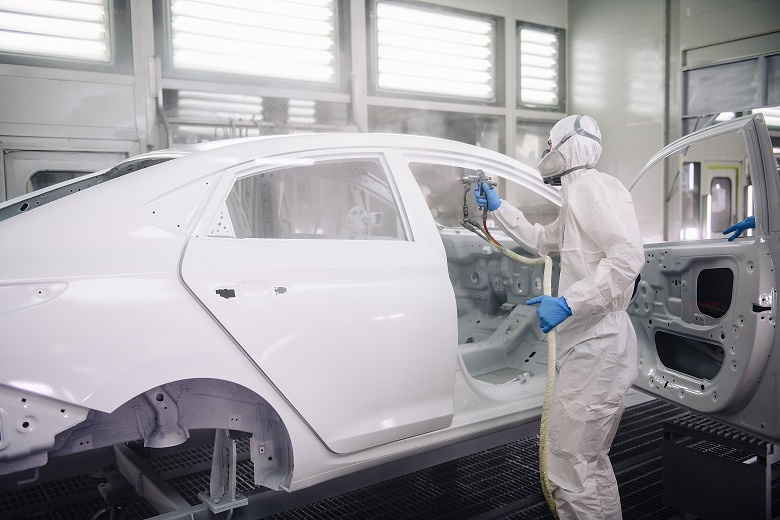
He also added that from 2017 to 2021 the annual growth of car sales in Kazakhstan’s market made 20–25 %. Amid the rise in popularity of Kazakhstan-made cars, domestic manufacturers make effort to expand supplies of components from various countries of the world, build new logistics routes, and set up the production of car components in Kazakhstan. Particularly, it was reported several days ago that Astana Motors localizes Korean brand components in Almaty and has already signed agreements with Youngsan Glonet Corp. Ltd. for the right to produce car seats using the Youngsan technology and with Motrex Co Ltd. for the right to produce multimedia devices using the Motrex technology.
The documents were signed during the official visit of Kazakhstan’s government delegation headed by First Deputy Prime Minister Roman Sklyar to Korea.
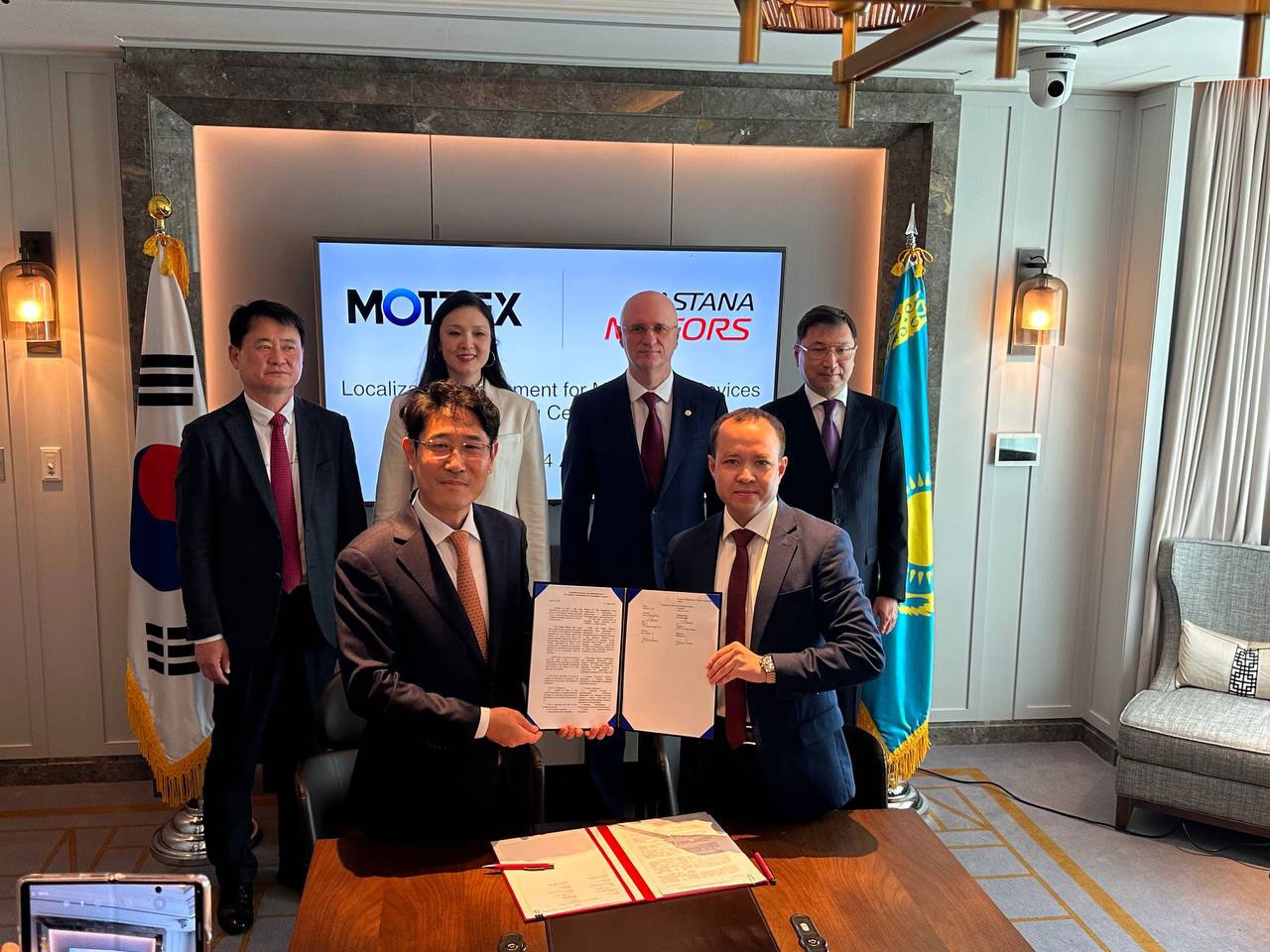
At the contract signing ceremony, Motrex Co Ltd. Chairman Hyung-Hwan Lee expressed gratitude to Kazakhstan’s government and Astana Motors for their interest in cooperation and pointed out that the Kazakh auto industry developed rapidly and Motrex Co Ltd. placed high hopes on the prospects of joint production of multimedia in Kazakhstan.
“We’re glad to supply components for Montrex multimedia systems, firstly for CKD assembly at Hyundai Trans Kazakhstan and further for other Kazakh enterprises,” Mr. Hyung-Hwan Lee emphasized.
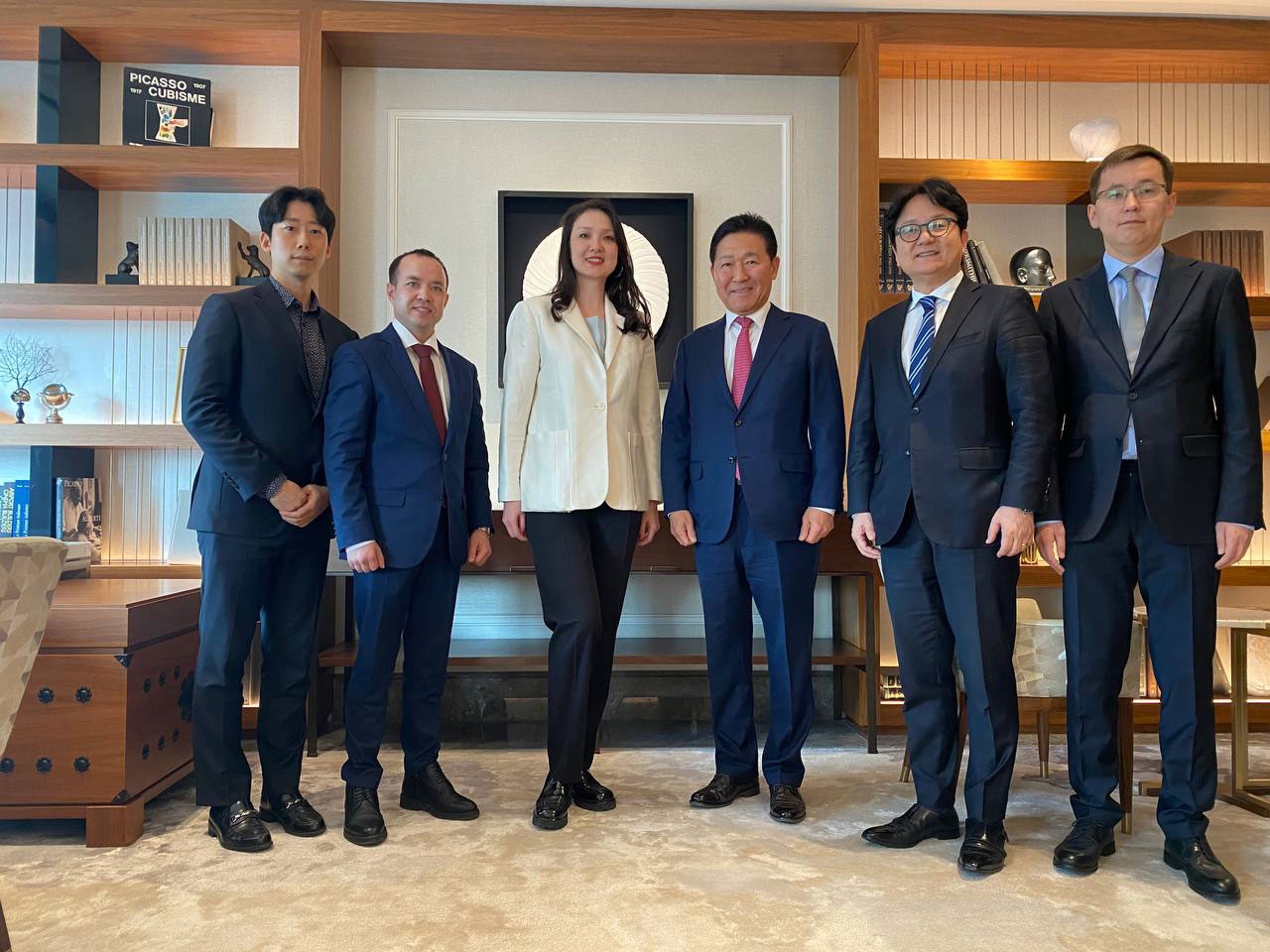
In turn, Youngsan Glonet Corp. Ltd. Chairman Jong Bum Park noted that the car seat production would be an important step in the development of Hyundai Trans Kazakhstan and Kazakhstan’s auto industry as a whole.
“Today we’ve signed a contract with Astana Motors and will keep on making more effort to implement the project for car component production in Kazakhstan,” Mr. Jong Bum Park said.
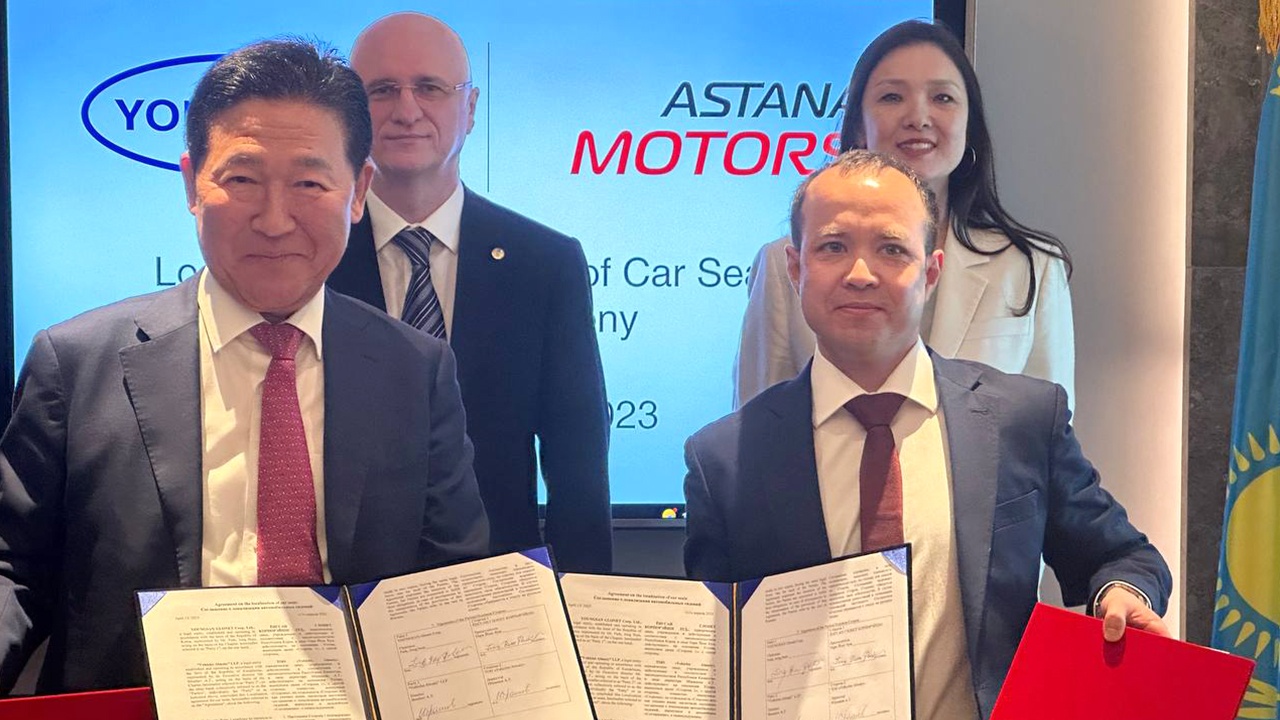
It should be reminded that Astana Motors is currently at the design stage for construction of three plants for the production of car seats, polyurethane rugs, wheel arch covers, splashguards, and multimedia systems for Hyundai cars on an area of over 10 hectares in the Almaty Industrial Zone jointly with foreign partners experienced in the production of car components in foreign countries. The complex of new enterprises will be located near the operating Hyundai Trans Kazakhstan plant. The area of production facilities will be 7700 sq. meters. The enterprises are scheduled to be launched in early 2024. The three car component enterprises are expected to employ some 90 specialists.
Assisted by the Government and the Ministry of Industry and Infrastructure Development of the Republic of Kazakhstan, the country is actively promoting localization. For our part, we are establishing a technology park in the Almaty Industrial Zone that will contribute to the development of small and medium businesses and creation of a pool of skilled car-making professionals. By developing the production of car components, we are expanding localization and building up a cluster economy,” Astana Motors CEO Beknur Nessipbayev said.

“Setting up capacities for the production of car components is a logical step in the development of the auto industry in any country in the world, which directly depends on the market potential. The fact that new production facilities are started up now, when the number of cars produced has exceeded 100,000, shows that despite all the challenges in the global market, the Kazakh auto industry keeps on developing by the industry rules. It’s clear that the localization of car components, on the one hand, requires a certain investment potential and regulatory stability. On the other hand, this process always gives rise to new skilled jobs, increases tax deductions and, what is most important for the consumer, stabilizes prices,” Car Market Monitoring and Analysis Agency Director Artur Miskaryan concluded.
Investments in the construction of the car component production complex in Almaty will total about 6.8 billion tenge, including some 0.9 billion tenge for setting up the multimedia production, up to 4.3 billion tenge for the car seat plant and some 1.6 billion tenge for the enterprise producing rugs, wheel arch covers, and splashguards.
